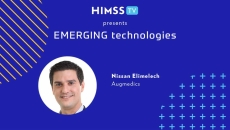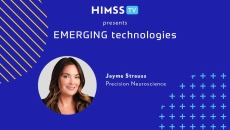Precision Medicine
European legislation, workforce trends, women’s health, AI implementations, and more will be in the spotlight at HIMSS25 Europe at the Palais des Congrès de Paris, France on 10-12 June 2025.
The company's augmented reality surgical technology allows surgeons see a virtual spine overlay directly on a patient during an operation, eliminating the need to look at a monitor. Founder Nissan Elimelech explains.
The Peter Doherty Institute for Infection and Immunity says it is now possible to track bacterial evolution in clinical settings in near real time.
It initially supports personalised cancer treatment based on the hospital's big clinical and genomic data.
The AI, trained on around 13,000 fundus images from over 600 Alzheimer's patients, has demonstrated up to 92% accuracy.
Jayme Strauss, chief commercial and clinical officer at Precision Neuroscience, joined MobiHealthNews to discuss the company's brain-computer interface aimed at allowing individuals to control digital devices using their thoughts.
Frederick Health’s precision medicine program integrates patients' genetic data into clinical workflows to support tailored decision-making. Jackie Rice, the hospital's chief information officer, describes the benefits.
In part one of our new Emerging Technologies series, Jayme Strauss, chief clinical and commercial officer at Precision Neuroscience, discusses the Layer 7 cortical interface, a minimally invasive brain-computer interface.
Gene and cell therapies can "reprogram" patients' own cells to stop the progression of certain cancers and genetic conditions in some situations, with remission rates of up to 92%, says Boro Dropulić, executive director of Caring Cross.
Nearly a decade since launching his Cancer Moonshot, the oncology research and precision medicine innovations of that project, along with other NIH-funded health data initiatives, have enabled advancements in personalized treatment and management.









